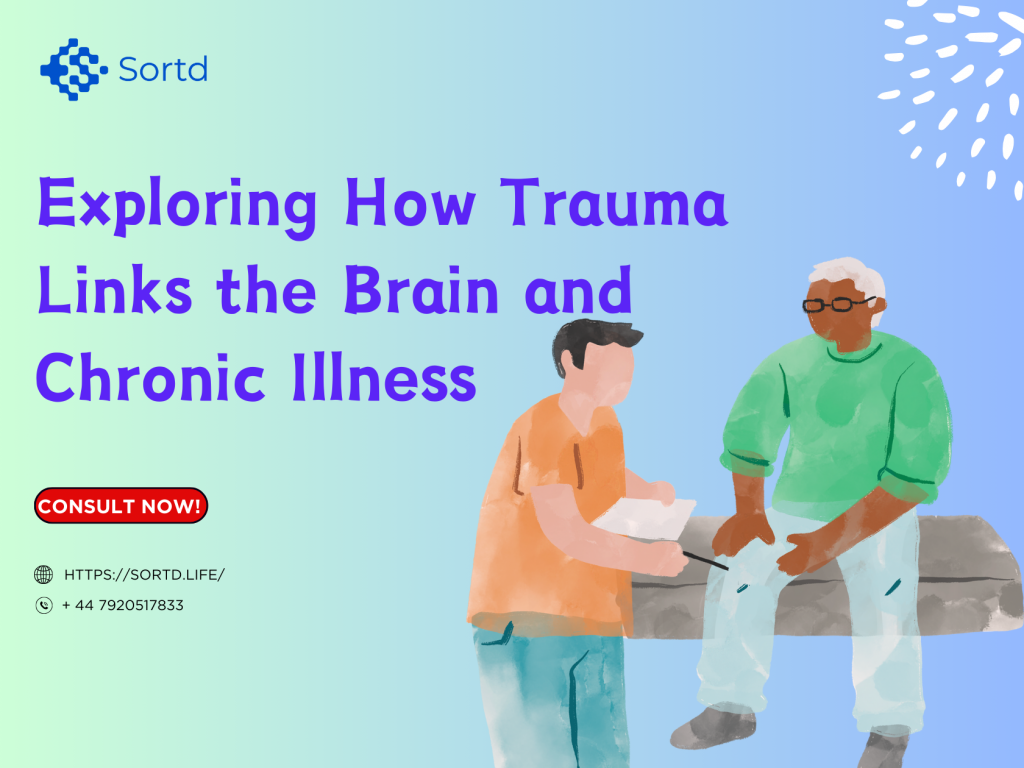
Exploring How Trauma Links the Brain and Chronic Illness
The human brain, a complex and remarkable organ, plays a pivotal role in our physical and mental well-being. Chronic illnesses, a persistent challenge for many, are increasingly recognized for their interconnectedness with psychological factors, especially trauma. In this blog post, we will delve into the intricate relationship between the brain and chronic illness, exploring how trauma can act as a connecting thread in this complex tapestry.
1. Understanding Chronic Illness:
Chronic illnesses, characterized by long-term health challenges, span a wide spectrum of conditions, from autoimmune disorders to cardiovascular diseases. Unraveling the factors influencing their development and progression is an ongoing area of research.
2. The Impact of Trauma on the Brain:
Trauma, whether physical, emotional, or psychological, can leave lasting imprints on the brain. The stress response system, particularly the release of stress hormones like cortisol, can become dysregulated, influencing various physiological processes and potentially contributing to the onset or exacerbation of chronic illnesses.
3. The Role of the Nervous System:
Trauma can disrupt the autonomic nervous system, which regulates involuntary bodily functions. Dysregulation in this system may manifest as increased inflammation, altered immune responses, and heightened sensitivity to pain – factors often associated with various chronic conditions.
4. Psychological Impact on Chronic Illness:
The psychological aftermath of trauma, such as depression, anxiety, or post-traumatic stress disorder (PTSD), can contribute to the development or aggravation of chronic illnesses. The mind-body connection highlights the interplay between mental health and physical well-being.
5. Inflammation as a Common Denominator:
Chronic inflammation is a hallmark of many chronic illnesses. Trauma-induced alterations in the immune system can contribute to persistent inflammation, acting as a common denominator that links trauma and various health conditions.
6. Epigenetic Influences:
Trauma can influence gene expression through epigenetic mechanisms. These changes may be passed down through generations, potentially impacting susceptibility to chronic illnesses. Understanding these epigenetic influences sheds light on the long-term consequences of trauma.
7. Chronic Illness as a Manifestation of Unresolved Trauma:
For some individuals, chronic illnesses may be viewed as physical manifestations of unresolved trauma. Recognizing the underlying psychological components can be instrumental in developing holistic approaches to treatment and management.
8. Holistic Approaches to Healing:
Acknowledging the connection between trauma, the brain, and chronic illness underscores the importance of holistic approaches to healing. Integrative therapies that address physical and psychological aspects can enhance overall well-being and quality of life.
Conclusion:
The intricate connection between the brain and chronic illness, influenced by the shadow of trauma, reveals the importance of adopting a comprehensive approach to healthcare. By understanding how psychological factors impact physical health, healthcare professionals and individuals can work towards integrated strategies that promote healing on multiple levels. Get the best couple counselling in London

